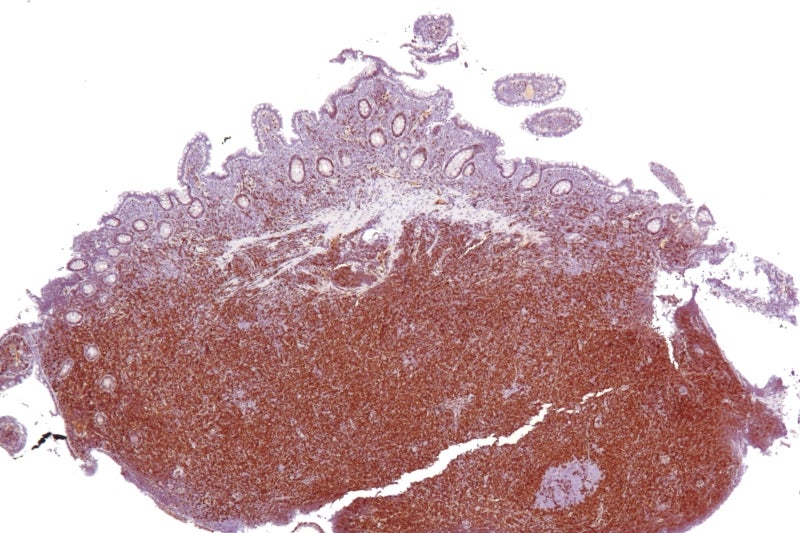The mantle cell lymphoma (MCL) landscape is diverse, containing nine drugs that are aimed at a variety of targets, including CD20, Bruton’s tyrosine kinase (BTK), DNA, 26s proteasome, and phosphoinositide 3-kinase (PI3K).
The figure below displays a competitive assessment of the marketed and late-stage pipeline drugs for MCL, a sub-type of non-Hodgkin’s lymphoma. The drugs are scored according to their clinical and commercial attractiveness.
Roche’s Rituxan (rituximab), with or without chemotherapy, is the standard-of-care regimen against which other agents are compared. While Rituxan possesses the highest clinical efficacy, it no longer possesses the highest commercial potential, as there are now rituximab biosimilars available in the US, the five major European markets (5EU: France, Germany, Italy, Spain, and the UK), and Japan.
Competitive assessment of MCL drugs

Source: GlobalData. © GlobalData

US Tariffs are shifting - will you react or anticipate?
Don’t let policy changes catch you off guard. Stay proactive with real-time data and expert analysis.
By GlobalDataThe therapies with the highest commercial potential in MCL are BTK inhibitors: AbbVie and Johnson & Johnson’s (J&J’s) Imbruvica (ibrutinib) and AstraZeneca’s Calquence (acalabrutinib), which have demonstrated high efficacy in MCL.
Other agents, including Celgene’s Revlimid (lenalidomide), Teva’s Treanda (bendamustine), Takeda’s Velcade (bortezomib), TG Therapeutics’ pipeline agents ublituximab and umbralisib (also known as the U2 regimen), and AbbVie’s Venclexta (venetoclax tablets), rank similarly in terms of commercial and clinical attributes. The outlier is Pfizer’s Torisel (temsirolimus), which has not demonstrated much efficacy in MCL and is not approved for that indication in the US.





